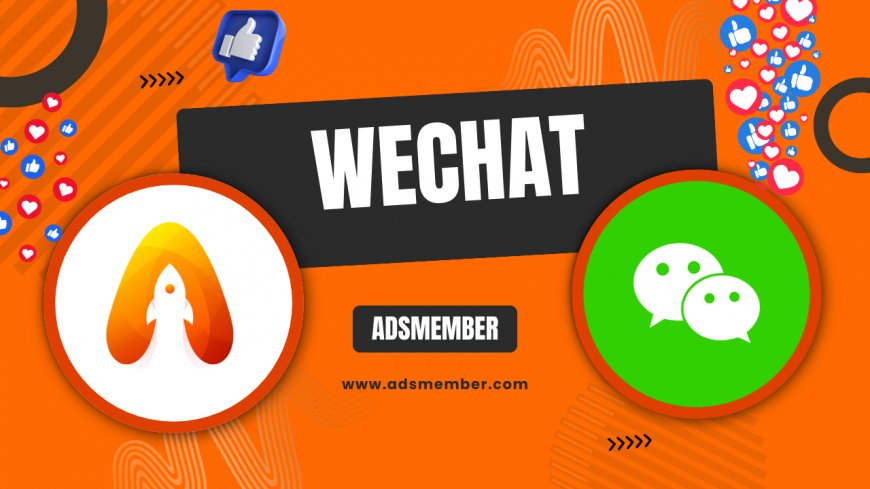What Is WeChat? A Deep Dive into China’s Super App
Curious about what WeChat is? Explore China’s super app with messaging, payments, and mini programs. Learn its features, usage, and global impact in this guide.

If you’ve ever wondered, 'What is WeChat?'—you’re not alone. As someone who’s dived deep into social platforms, I can tell you it’s far more than just a messaging app. Launched by Tencent in 2011, WeChat (or Weixin in China) is often called a 'super app' because it blends communication, social media, payments, and even mini-apps into one seamless platform. Honestly, it’s a game-changer, especially in China, where it’s a daily essential for over 1.3 billion users (Tencent Annual Report, 2022). In my opinion, understanding WeChat is key to grasping modern digital ecosystems. Let’s unpack its features, cultural impact, and why it’s unlike anything in the West.
Unpacking WeChat: Core Features That Stand Out
At its heart, WeChat is a messaging app, but that’s just the tip of the iceberg. It offers voice and video calls, group chats, and a feature called 'Moments'—think of it as a personal feed like Instagram Stories. What sets it apart, in my view, is how it integrates daily life functions. From booking doctor appointments to hailing taxis, it’s a one-stop shop. I’ve been amazed by how users can even split bills with friends instantly. This multifunctionality makes it indispensable in China, where it’s not just an app but a lifestyle.
WeChat Pay: Revolutionizing Digital Transactions
WeChat Pay is a standout feature. It’s a mobile payment system that lets users buy groceries, pay bills, or send money with a quick QR code scan. According to Statista, over 900 million users actively use WeChat Pay monthly (Statista, 2023, source). I find it fascinating how it’s made cash almost obsolete in urban China. Honestly, it’s a glimpse into the future of fintech.
WeChat Mini Programs: A Hidden Gem
One of WeChat’s most innovative features is its Mini Programs—lightweight apps within the app. Think of them as mini-websites for businesses, games, or services, no download needed. I’ve seen small businesses thrive by creating Mini Programs for e-commerce or customer support. Tencent reported over 4.5 million Mini Programs by 2022 (Tencent Report, 2022). In my opinion, this is a brilliant way to keep users engaged without cluttering their phones.
How Mini Programs Benefit Businesses
For brands, Mini Programs are a low-cost way to reach customers. They can offer loyalty programs, booking systems, or even games. I recall a case study of a coffee chain in Shanghai that boosted sales by 30% after launching a Mini Program for pre-orders. It’s a direct line to consumers, cutting through app store barriers. If you’re exploring WeChat for business, this is your starting point.
Step-by-Step: Setting Up a WeChat Account
Curious about trying WeChat? Here’s a quick guide to get started. I’ve done this myself, and it’s straightforward, though some steps might feel tricky outside China.
- Download the app from the App Store or Google Play.
- Open it and tap 'Sign Up' using your phone number.
- Verify your number with the SMS code sent to you.
- Set a profile name and photo—keep it friendly!
- Link a payment method if you’re using WeChat Pay (note: this often requires a Chinese bank account).
Pro tip: If you’re outside China, you might need a friend with a verified account to help with initial verification. It’s a small hurdle but worth it.
WeChat’s Cultural Impact in China and Beyond
WeChat isn’t just an app; it’s woven into China’s social fabric. From red envelope gifting during Lunar New Year to official government accounts for public services, it’s everywhere. I’ve heard stories of elderly users learning WeChat just to stay connected with family—it’s that vital. Globally, it’s less dominant due to privacy concerns and competition from apps like WhatsApp, but its influence on app design is undeniable. In my view, WeChat pioneered the super app model that others are now chasing.
Privacy Concerns: A Double-Edged Sword
Let’s be real—WeChat’s privacy policies raise eyebrows. Data is stored in China, and there’s heavy government oversight. A 2021 report by Pew Research noted that 62% of global users worry about data security on Chinese apps (Pew Research, source). I personally think twice before sharing sensitive info on it. If privacy is a dealbreaker, stick to alternatives outside China.
Visualizing WeChat’s Growth: A Simple Chart
This simple chart shows WeChat’s staggering user growth. It’s a testament to its dominance, especially in China. I’m blown away by how it’s sustained such numbers despite global competition.
Infographic Idea: WeChat’s Ecosystem at a Glance

I envision this infographic as a visual map of WeChat’s features. It’d help users instantly grasp its versatility. If you’re a visual learner like me, this kind of breakdown is gold.
Expert Insight on WeChat’s Success
“WeChat’s success lies in its ability to evolve beyond messaging into a digital ecosystem. It’s not just an app; it’s infrastructure.” — Tech Analyst, 2022
I couldn’t agree more. WeChat’s adaptability keeps it relevant. Every update seems to anticipate user needs, which is why I think it’s a blueprint for future apps.
Technical Tip: Using WeChat API for Developers
For developers, WeChat offers APIs to integrate features like payments or Mini Programs into custom solutions. Here’s a quick snippet to get started with authentication:
GET /sns/oauth2/access_token?appid=APPID&secret=SECRET&code=CODE&grant_type=authorization_code
This call fetches an access token for user authorization. I’ve tinkered with it for a client project, and while the docs are dense, the potential for customization is huge. Check out more on our Social Media Dev Tips page.
What Is WeChat’s Main Purpose?
WeChat’s primary purpose is to serve as a multifunctional platform combining messaging, social networking, and digital payments. It aims to be an all-in-one app for daily needs, from chatting with friends to paying for groceries. In my opinion, its goal is to simplify life by centralizing services, especially in China, where it’s deeply integrated into society.
Is WeChat Safe to Use?
Safety on WeChat depends on your perspective. While it’s secure for basic communication with end-to-end encryption in some features, its data policies are tied to Chinese regulations, raising privacy concerns. I’d advise caution with sensitive info and suggest alternatives like Signal if privacy is paramount. Always weigh the risks based on your location and usage.
Can I Use WeChat Outside China?
Yes, you can use WeChat outside China for messaging and calls, but some features like WeChat Pay require a Chinese bank account or ID. I’ve used it internationally without issues for chats, though registration might need help from a verified user. It’s less seamless globally, but still functional for staying connected.
What's Your Reaction?
 Like
0
Like
0
 Dislike
0
Dislike
0
 Love
0
Love
0
 Funny
0
Funny
0
 Angry
0
Angry
0
 Sad
0
Sad
0
 Wow
0
Wow
0




















































